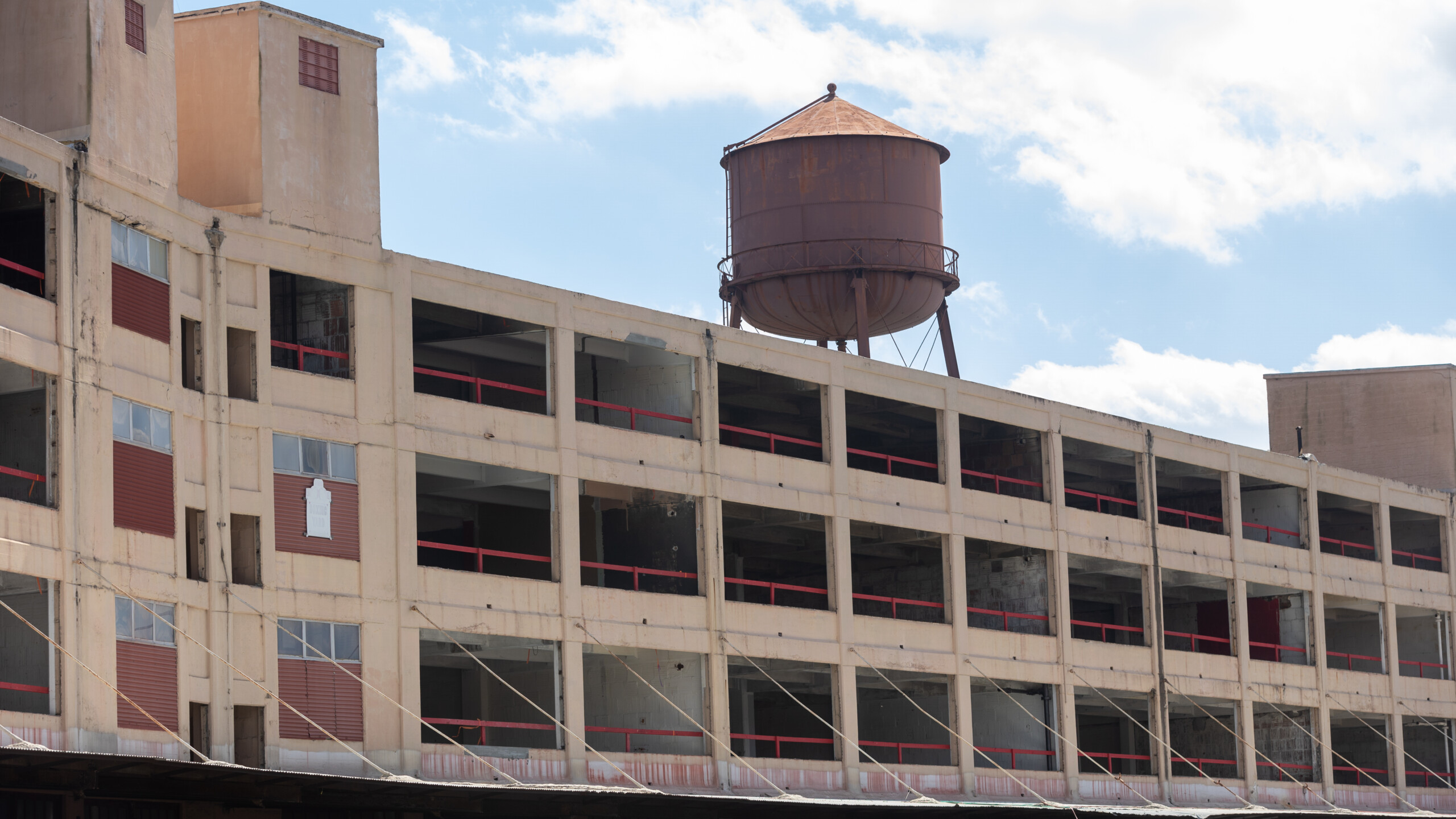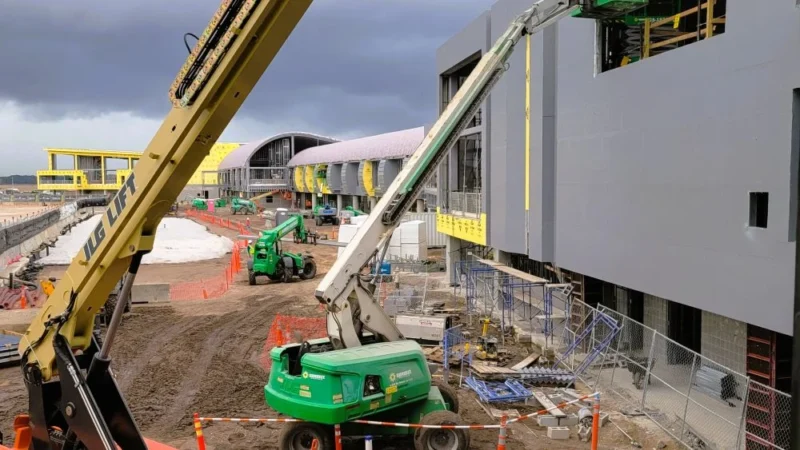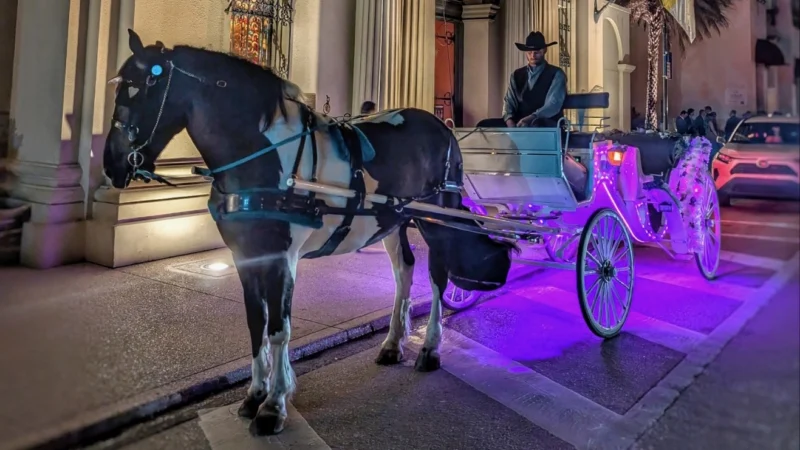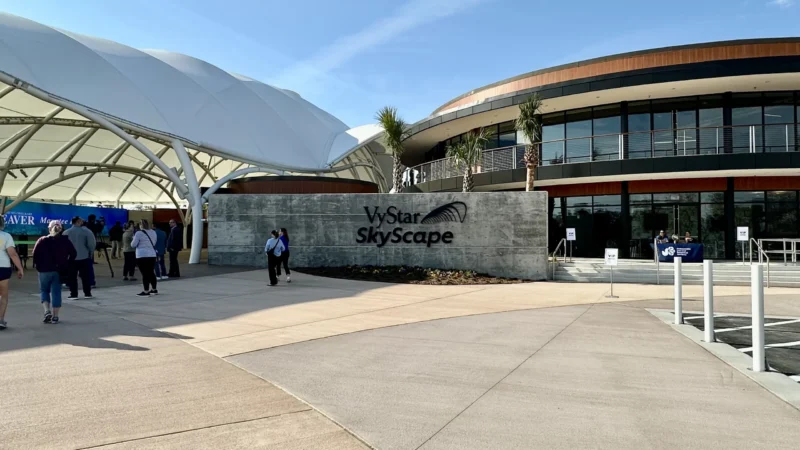When Ryan Akin explained the qualities of the Union Terminal Warehouse once it’s renovated next year, he immediately caught the attention of Eastside advocates.
It will devote a majority of its 228 residences to workforce housing.
Akin is the development manager for Columbia Ventures, the Atlanta-based developer that is converting the former grocery warehouse into residential, commercial and retail space. As he stood in a navy suit and white hard hat on a warm, early spring morning, community advocates Suzanne Pickett and David Garfunkel shared a smile.
Those connections with the Eastside community are what may separate the Union Terminal Warehouse from others in Jacksonville.
Columbia Ventures has worked with residents, business owners and advocates on the Eastside to integrate the project into a community that needs development, but has been the recipient of previous false dawns.
Pickett, CEO of the Historic Eastside Community Development Corp., advocates on behalf of the residents and businesses of the Eastside. Garfunkel, is president of LIFT JAX, a nonprofit aimed at eradicating poverty through connections of business and community leaders with the Eastside. The two left Monday’s tour of the Union Terminal Warehouse with smiles that indicated their surprise at the scope of the property’s inclusiveness of the Eastside community.
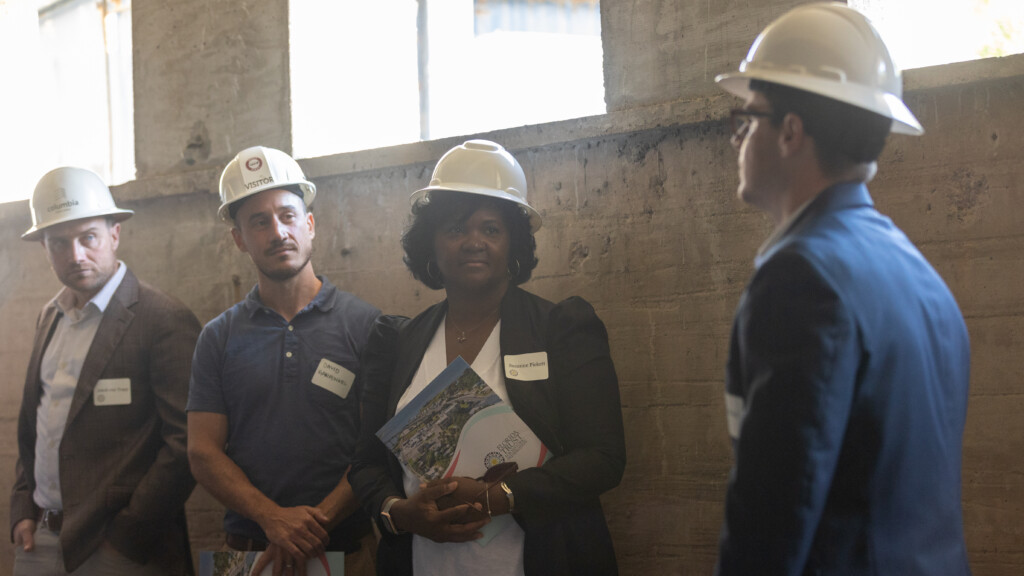
The Eastside is the only historically Black neighborhood surrounding Downtown Jacksonville that was not gentrified or eviscerated by an interstate.
In Brooklyn, historic buildings have been demolished to make way for corporate headquarters, and the mixed-use developments that have been brought online in the last decade were new construction. Meanwhile, LaVilla residents and a local developer are at odds over a potential mixed-use development that would have grocery, restaurant and fueling options.
Those issues are not apparent Out East.
Dawn Curling co-founded the Melanin Market in 2014 with current state Rep. Angie Nixon. Curling has owned a T-shirt and screen printing business along A. Philip Randolph Boulevard since 2005 and believes the project will be a blessing to the Eastside.
“I welcome the Union Terminal because it’s going to be good business for everyone,” Curling says. “We can go and shop with them. They can come and shop with us. We can foster individuals who want brick-and-mortar (stores) to have spaces over there.”
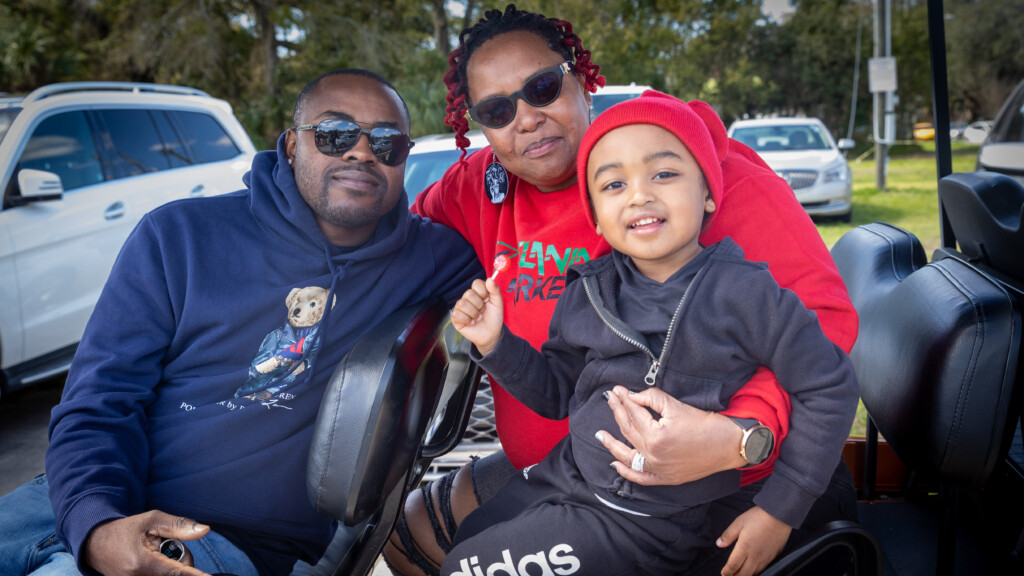
The project calls for 228 residential spaces that range from studio apartments to three-bedroom properties. It also will have 50,000 square feet of small office space, potential for food and beverage options as well as a 3,000-square-foot rooftop terrace.
Byron Robinson grew up on the Eastside. His mother was born in a house near East 21st Street, and he will eventually inherit it. He operates a grassroots nonprofit, Better Dads Society, that works to provide tools to help men become better fathers – lessons he learned growing up Out East in the ’80s and early ’90s.
Robinson says his only concern was Columbia putting its commitment to the community in writing and assurances the developer would “be respectful of our roots.”
Leo Baker stressed that is indeed the case. Baker didn’t grow up Out East. He grew up in Arlington and graduated from Stanton College Prep the same year Robinson finished at Andrew Jackson High School. Today, he is the owner of Vantage Point Coffee Co., a premium coffee maker that roasts its beans in a building adjacent to the Union Terminal that Columbia owns.
Baker reached out to the developer in 2021 as his need for space increased. Vantage Point’s growth over the last two years allowed Baker and his family to open its first brick-and-mortar location in Arlington this spring.
Winter warmth and proximity to family brought Baker back to Jacksonville from Massachusetts in 2016. He says he watched the Eastside decline from a distance in the decades he lived elsewhere because “no one put effort into revitalization.”
“It’s going to revitalize the community and bring a lot of employment opportunities and a sense of pride back into the community,” Baker says of the Union Terminal project. “It is an opportunity zone. It allows for tax breaks as well. That’s a big opportunity for me as a business owner.”
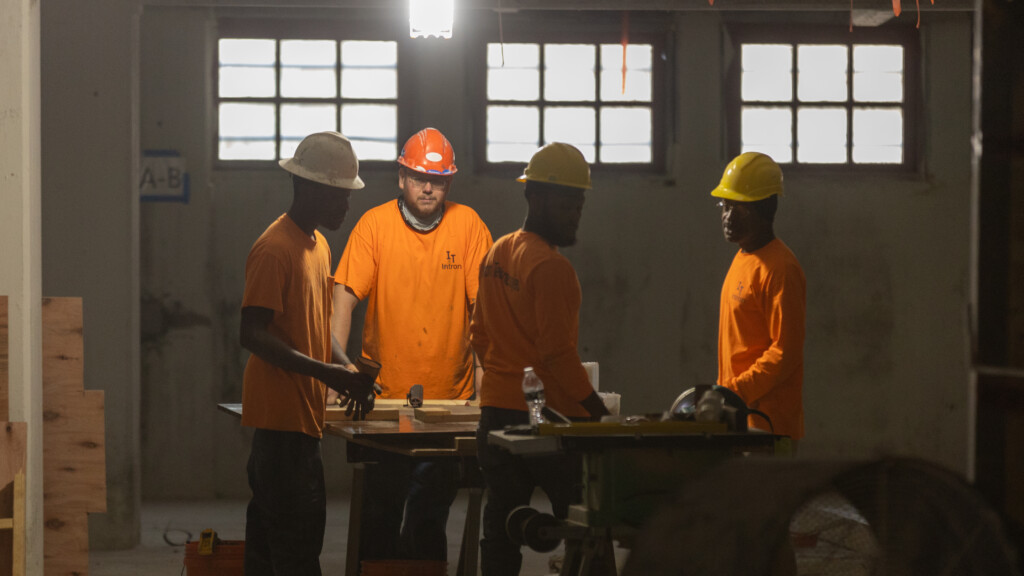
Opportunity zones are tracts of land eligible for additional tax credits and incentives for developers and business owners who operate in properties in those areas. The Union Terminal location straddles two census tracts that are federally recognized Opportunity Zones.
Columbia managing partner Dillon Baynes says the Union Terminal Warehouse tells a story of the Eastside and Jacksonville at large. The company’s experience renovating historic buildings in Atlanta, and work developing a mixed-use project along Atlanta’s BeltLine, helped inform Columbia of the efforts it needed to undertake to revive the Union Terminal Warehouse while not alienating the Eastside community.
“We’ve seen over the years what can really thrive and what can add an energy to a building that otherwise wouldn’t have it,” Baynes says. “You tend to have a homogenous energy if you are singularly residential or if you’re singularly medical office, creative class or just a restaurant. But, when you put those together, suddenly an interesting dynamic can occur. It’s really interesting to see that dynamic growth that occurs when you mix the uses in one location.”
Northeast Florida’s rapid growth, as well as the shortage of housing, has ratcheted up prices for homes and apartments since the onset of the pandemic. Pickett, of the Historic Eastside CDC, was aware there would be an affordable housing component of the Union Terminal project. She didn’t realize how much until touring the property.
“It’s going to be an almost perfect affordable housing project, mixed-income scenario, which we really need on the Eastside,” Pickett says. “Also, residents and families, (and) the generations of families will be able to afford to live here in this space – in this beautiful, wonderful, curated space – right here on the Eastside. We don’t get that very often.”


